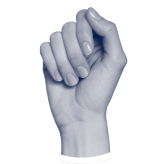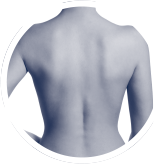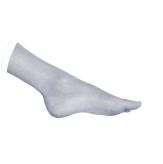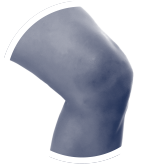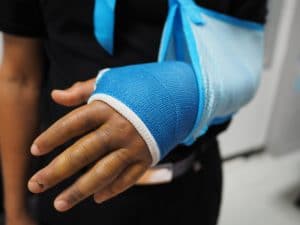
In a recent survey it was found that only 1 in 3 Britons are getting the recommended 7-9 hours of sleep a night, with the average sleep time of just over 6hrs.
In our pursuit of optimal health, we often prioritise factors like diet and exercise, but one crucial aspect that is sometimes overlooked is sleep. Beyond just feeling refreshed in the morning, adequate sleep plays a fundamental role in supporting overall well-being, including bone health and tissue repair. Let’s delve into why quality rest is essential for maintaining strong bones and facilitating effective tissue repair processes.
Understanding Bone Health and Tissue Repair
Before we explore the relationship between sleep and bone health, it’s crucial to understand the mechanisms involved in bone maintenance and tissue repair. Our bones are dynamic structures that undergo continuous remodelling throughout our lives.
This process involves two main types of cells: osteoblasts, which build new bone tissue, and osteoclasts, which break down and resorb old bone tissue. Proper bone remodelling relies on a delicate balance between these two processes.
Similarly, tissue repair is a complex physiological process that occurs in response to injury or damage. Whether it’s repairing micro-tears in muscle fibres after exercise or healing broken bones, tissue repair requires coordinated cellular activity and the synthesis of new proteins.
The Role of Sleep in Bone Health
Quality sleep is vital for maintaining optimal bone health. During deep sleep stages, the body enters a state of heightened repair and regeneration. Research suggests that sleep influences bone metabolism by modulating the activity of osteoblasts and osteoclasts at a cellular level. Inadequate or disrupted sleep patterns can disrupt this delicate balance, leading to impaired bone formation and increased bone resorption.
Furthermore, sleep deprivation has been associated with alterations in hormone levels, including cortisol and growth hormone, which play crucial roles in bone metabolism. Elevated cortisol levels, often observed in individuals with chronic sleep disturbances, can contribute to the breakdown of bone tissue and weaken your bone structure over time.
Tissue Repair and Sleep Quality
Beyond its impact on bone health, sleep also plays a critical role in tissue repair processes throughout the body. During sleep, the body releases growth hormone, which stimulates tissue growth and repair. This hormone is particularly important for repairing damaged muscles, tendons, and ligaments after physical activity or injury.
Moreover, sleep promotes the production of cytokines and other immune factors that facilitate the inflammatory response necessary for tissue repair. By supporting the body’s immune function, adequate sleep helps to accelerate the healing process.
Tips for Improving Sleep Quality
Given the importance of sleep for bone health and tissue repair, prioritising good sleep hygiene should be an essential aspect of any wellness routine. Here are some tips for improving sleep quality:
- Establish a Consistent Sleep Schedule: Aim to go to bed and wake up at the same time every day, even on weekends, to regulate your body’s internal clock.
- Create a Relaxing Bedtime Routine: Wind down before bed by engaging in calming activities such as reading, meditation, or gentle stretching.
- Optimise Your Sleep Environment: Ensure that your bedroom is conducive to sleep by keeping it dark, quiet, and cool. Invest in a comfortable mattress and pillows that support proper spinal alignment.
- Limit Screen Time Before Bed: Reduce exposure to electronic devices such as smartphones, tablets, and computers in the hour leading up to bedtime, as the blue light emitted can disrupt sleep patterns.
- Watch Your Diet and Hydration: Avoid heavy meals, caffeine, and alcohol close to bedtime, as these can interfere with sleep quality. Stay hydrated throughout the day, but reduce fluid intake in the evening to minimise nighttime waking.
Conclusion
In conclusion, sleep is a critical component of bone health and tissue repair. By prioritising quality rest and adopting healthy sleep habits, we can support the body’s natural processes of bone remodelling and tissue regeneration. Whether you’re an athlete striving for peak performance or simply seeking to maintain overall well-being, remember that investing in a good night’s sleep is one of the most powerful strategies you can adopt for long-term health.
London Bridge Orthopaedics
London Bridge Orthopaedics is a private London orthopaedic clinic with a team of 14 leading private orthopaedic consultants, based in our headquarters at The Shard. We work in partnership with one of the largest and most respected private hospitals in the United Kingdom, London Bridge Hospital, and so have access to comprehensive, state-of-the-art medical facilities.
We provide the highest quality of surgical and non-surgical care to adult patients with the whole spectrum of orthopaedic complaints, including acute injuries such as broken bones and torn ligaments, more severe injuries which require complex reconstruction, and long term conditions such as arthritis and nerve compression. We also treat patients with sports injuries, from the occasional enthusiast to the elite athlete.
If you are suffering from an injury, don’t delay in getting it sorted. You can make an appointment to see any of our Orthopaedic Consultants by completing an appointment request form, or calling our new patient booking line on 020 4584 3585
For more orthopaedic news, follow London Bridge Orthopaedics on Twitter, Facebook and LinkedIn.


